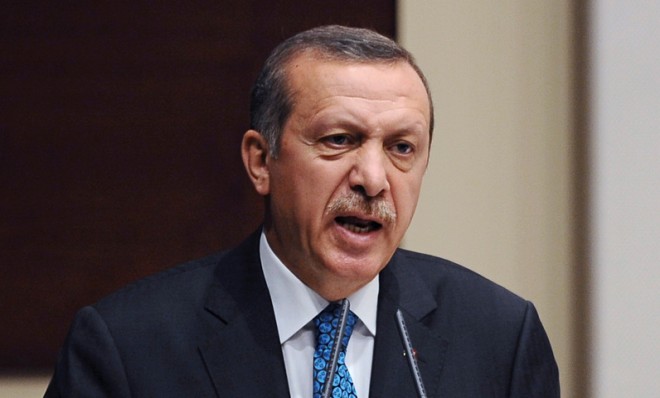Is Turkey's Tayyip Erdogan finally relenting — or preparing a bigger crackdown?
The tough-guy prime minister strikes a rather evasive deal with protesters


Turkish Prime Minister Recep Tayyip Erdogan promised Friday to let a court decide the fate of his development plan for Istanbul's beloved Gezi Park, where a crackdown on a sit-in by environmental protesters set off nationwide anti-government demonstrations. "We wait for the legal procedure to end, and if after that there's need for a public vote, we'll go to the polls," Erdogan said after meeting with protesters and reaching a compromise.
That's the good news. The bad news is that Erdogan — whom the demonstrators criticize as increasingly authoritarian — also issued an ultimatum to young protesters still flocking to the area around the park in Taksim Square, telling them to leave... or else. "Don't force us to use other methods," Erdogan said.
Erdogan has been under pressure to back down, as the U.S. and Turkey's NATO allies have urged him to negotiate, condemning his crackdown — in which police used tear gas and water cannons to disperse the crowds. But he and his Islamist party have won decisive victories in three straight elections, which, Ed Morrissey at Hot Air suggests, means that Erdogan doesn't feel that he's risking much. A court is unlikely to overrule him on a land-use matter in a crowded city:
The Week
Escape your echo chamber. Get the facts behind the news, plus analysis from multiple perspectives.

Sign up for The Week's Free Newsletters
From our morning news briefing to a weekly Good News Newsletter, get the best of The Week delivered directly to your inbox.
From our morning news briefing to a weekly Good News Newsletter, get the best of The Week delivered directly to your inbox.
Basically, Erdogan is demanding that the protesters accept a thin premise of moral victory before beating a hasty retreat. By making the offer and pairing it with the warning of what will happen if they refuse, Erdogan is defusing some of the real risk to his standing preemptively. It's a smart move, and doesn't leave the protesters much room to maneuver. [Hot Air]
Erdogan might simply be hoping to take some steam out of the protests, though, so that they'll fade on their own. Peter Beaumont at Britain's Guardian looks at this as "a calculated political move to step back from the violent confrontations that have left five dead and more than 5,000 injured since protests erupted in Turkey." Erdogan, Beaumont says, is hoping to divide and conquer by throwing a bone to the people angry about the park by suspending the plan to build there, and hoping that erodes the support of those protesting against his other policies.
Still, Erdogan's confidence does appear to have been shaken by the anger being vented in the streets, and he may be looking for a way to back down without losing face. Yusuf Kanli at Turkey's Hurriyet says the country's "almighty sultan" will never admit he was wrong, but the protesters have shown him he can't silence them with rubber bullets. In fact, using "horrendous brute force" is what turned a sit-in to save some trees into a nationwide uprising, he adds:
Gezi has become the symbol of participatory democracy as it underlined that elections alone are not sufficient for democratic governance, people need to be consulted all the time.
Most importantly, Gezi reminded everyone that united we are powerful and to protest is a constitutional right. And of course, with the social media, there is a new world with new and awake citizens. [Hurriyet]
A free daily email with the biggest news stories of the day – and the best features from TheWeek.com
Harold Maass is a contributing editor at The Week. He has been writing for The Week since the 2001 debut of the U.S. print edition and served as editor of TheWeek.com when it launched in 2008. Harold started his career as a newspaper reporter in South Florida and Haiti. He has previously worked for a variety of news outlets, including The Miami Herald, ABC News and Fox News, and for several years wrote a daily roundup of financial news for The Week and Yahoo Finance.
-
 Dive right into these 8 underwater adventures
Dive right into these 8 underwater adventuresThe Week Recommends It’s time to make a splash
-
 The world’s oldest rock art reveals hints about human migration
The world’s oldest rock art reveals hints about human migrationUnder the Radar The art is believed to be over 67,000 years old
-
 Grok in the crosshairs as EU launches deepfake porn probe
Grok in the crosshairs as EU launches deepfake porn probeIN THE SPOTLIGHT The European Union has officially begun investigating Elon Musk’s proprietary AI, as regulators zero in on Grok’s porn problem and its impact continent-wide
